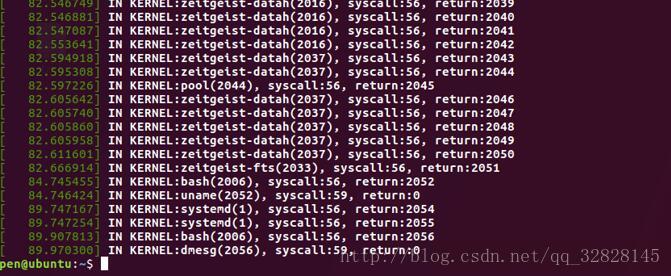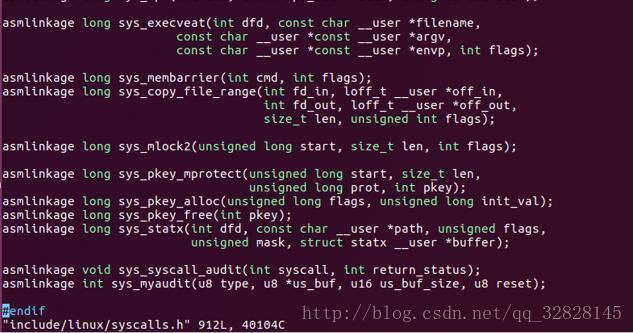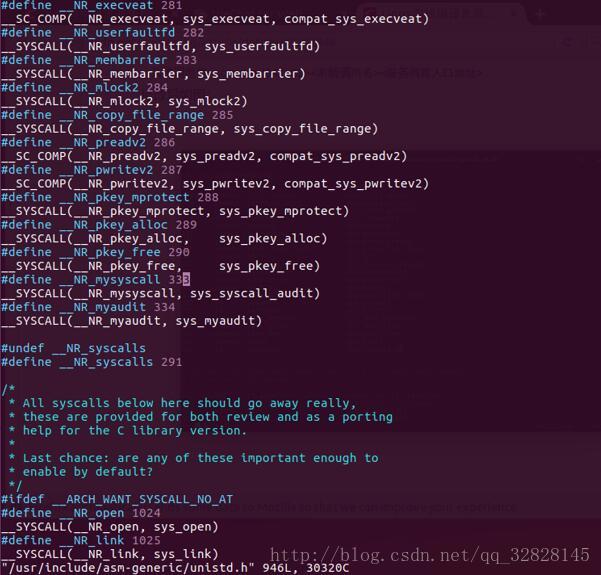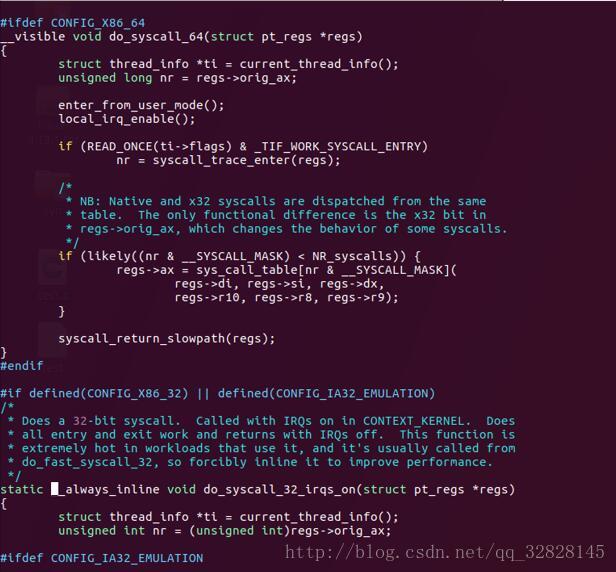系统调用日志收集系统实例
1 介绍
实验环境
Ubuntu64位,系统自带内核版本为4.10.0, 实验使用版本为4.13.1。
系统调用日志收集系统的结构图
2 实验
1.添加系统调用
将myaudit.c文件添加到arch/x86/kernel/目录下
myaudit文件
#include 自己添加的文件需要编译进内核时,需要修改当前目录下的Makefile文件,在相应位置添加
obj-y += vsmp_64.o
obj-y += myaudit.o #添加的行
2.在arch/x86/entry/syscalls/syscall_64.tbl文件中添加系统调用号
3.修改头文件include/linux/syscalls.h,在文件最后添加两个函数声明
4.在/include/asm-generic/unistd.h添加系统调用号
5.修改arch/x86/entry/common.c文件
3.编译内核
1.配置内核使用make localmodconfig
2.使用make -j8编译内核
这里可能会出现两个错误:
fatal error: openssl/opensslv.h: No such file or directory
这是因为没有安装openssl的,需要先安装openssl: apt-get install libssl-dev
bc: not found。需要安装bc:apt-get install bc
安装对应依赖后再运行。
3.完成后执行make modules_install安装模块,执行make install 进行安装
4.安装完成后,重启选择对应的内核启动
启动后运行dmesg可以看到以下输出

说明新增的系统调用已正确运行
4.编写内核模块
myaudit.c文件:
#include #include 






